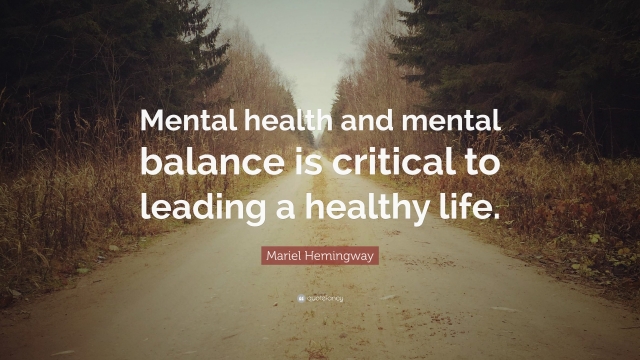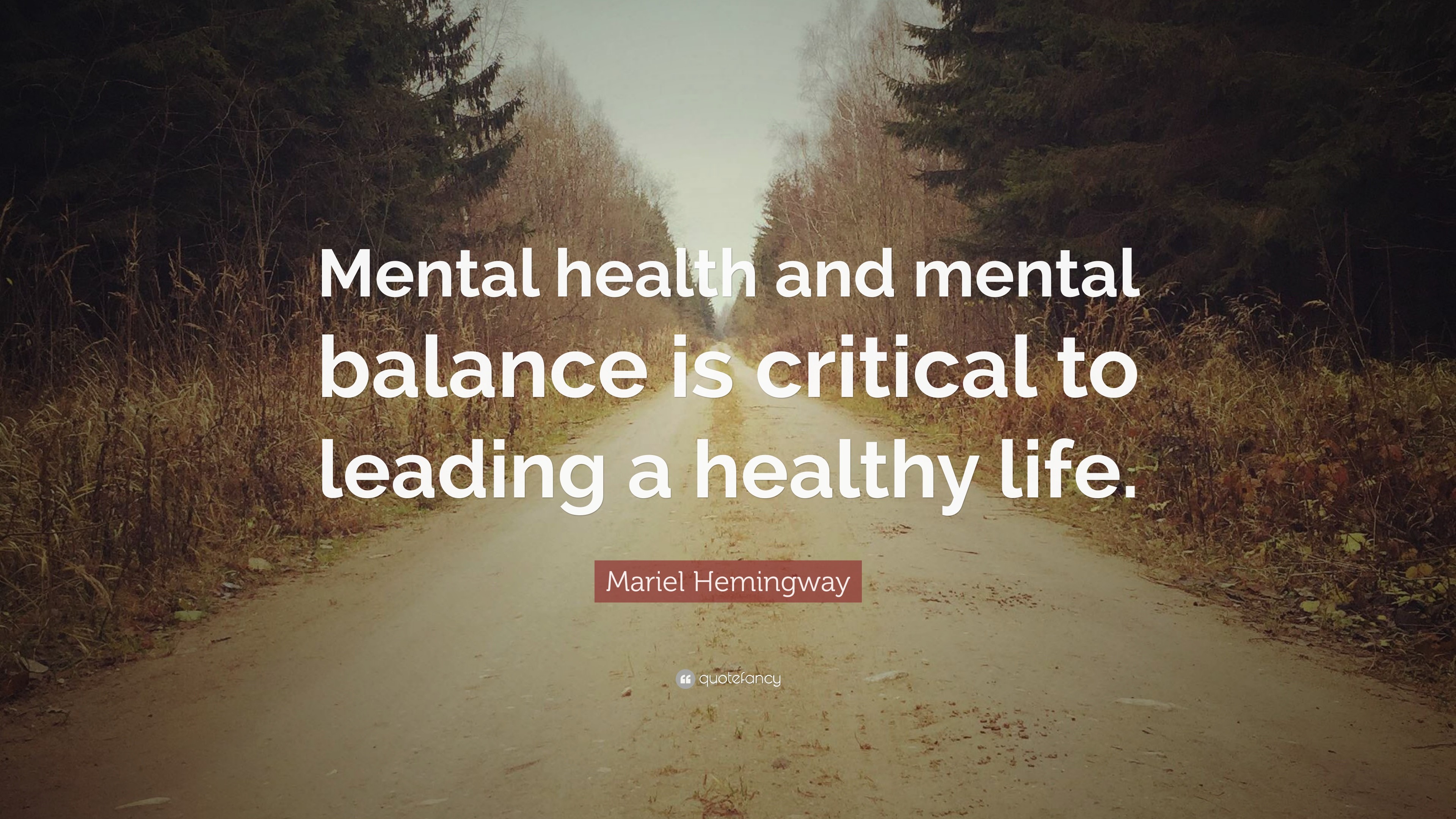We live in a fast-paced, constantly evolving world, where stress and anxiety seem to be our unwelcome companions. In the pursuit of success and happiness, we often overlook a fundamental aspect of our well-being – our mental health. We prioritize external achievements and material possessions, neglecting the inner peace and clarity that comes from nurturing our wellness.
Wellness, encompassing physical, emotional, and spiritual health, is a holistic concept that reminds us of the importance of achieving balance in all aspects of our lives. However, while we may make efforts to maintain physical fitness, mental health tends to take a backseat. It is high time we recognize that true wellness cannot be achieved without addressing our mental well-being.
Our mental health is intricately linked to our overall sense of harmony and contentment. Without nurturing it, we become vulnerable to stress, depression, and numerous other mental health challenges that can hinder our ability to lead fulfilling lives. Therefore, it is of paramount importance that we unlock the gates to our inner peace and actively prioritize our mental health.
Exploring Wellness Practices
In our journey towards nurturing wellness and maintaining good mental health, it is essential to explore various practices that can contribute to our overall well-being. By incorporating these practices into our daily lives, we can unlock inner peace and cultivate a sense of balance and harmony. Let’s delve into some wellness practices that can help foster mental and emotional well-being.

Mindfulness: One of the key pillars of wellness is practicing mindfulness. This involves bringing our attention to the present moment and fully experiencing it without judgment or attachment. By cultivating mindfulness, we can increase our awareness of our thoughts, emotions, and sensations, allowing us to respond to them in a more conscious and compassionate manner. Engaging in mindfulness exercises such as meditation, deep breathing, or simply being fully present in our daily activities can promote a calmer and more centered state of mind.
Physical Activity: Regular physical exercise is not only beneficial for our physical health but also plays a crucial role in nurturing our mental well-being. Engaging in activities like walking, jogging, dancing, or any form of exercise that brings joy and gets the body moving releases endorphins, which are natural mood boosters. Exercise also helps reduce stress, anxiety, and depression while improving sleep quality and overall cognitive function. Finding an activity that resonates with you and incorporating it into your routine can significantly contribute to your mental and emotional wellness.
Self-Care: Taking time for self-care is essential for maintaining overall wellness and mental health. Self-care practices can vary from person to person, as they involve activities that bring joy, relaxation, and nourishment to the mind, body, and soul. Whether it’s indulging in a bubble bath, practicing self-reflection, reading a good book, or spending quality time with loved ones, self-care allows us to recharge and prioritize our well-being. Remember, self-care is not selfish; it is a vital aspect of cultivating inner peace and maintaining optimal mental health.
Therapy Fort Worth
By embracing and incorporating these wellness practices into our lives, we can unlock the power to nurture our well-being and foster inner peace. Each individual’s journey towards mental and emotional wellness may be unique, but through mindfulness, physical activity, and self-care, we can all embark on a path that leads to a more fulfilling and balanced life.
Understanding Mental Health
In our journey towards wellness and mental health, it is crucial to have a clear understanding of what mental health truly means. It encompasses our emotional, psychological, and social well-being, shaping how we think, feel, and act. Mental health is not just the absence of mental illness but rather a state of overall well-being where individuals can cope with the normal stresses of life, work productively, and contribute positively to their communities.
It is important to recognize that mental health is a dynamic and evolving aspect of our lives. Just as our physical health can fluctuate, so can our mental well-being. Factors such as experiences, genetics, and environment can all play a role in influencing our mental health. It is essential to remember that mental illnesses are common and can affect anyone, regardless of age, gender, or background. They are medical conditions, just like physical illnesses, and should be treated as such.
One key element of fostering mental health is self-awareness. Understanding our own thoughts, feelings, and behaviors can help us recognize when we may be struggling and in need of support. It is also crucial to promote open conversations about mental health, reducing the stigma associated with seeking help. Creating a supportive environment where individuals feel safe to speak up and ask for assistance is a vital step towards nurturing wellness for everyone.
Overall, gaining a better understanding of mental health allows us to appreciate its importance in our lives. By recognizing its dynamic nature and actively promoting self-awareness and open conversations, we can work towards unlocking inner peace and nurturing our mental well-being for a healthier and happier life.
Remember, you can always seek professional help if you or someone you know is experiencing mental health difficulties. There is support available, and no one should have to face these challenges alone.
Building a Personal Wellness Routine
- Establishing Healthy Habits
Creating a personal wellness routine is an essential step towards nurturing wellness and mental health. By establishing healthy habits, we can lay a foundation for a balanced and fulfilling life. This involves incorporating activities that promote physical, emotional, and mental well-being into our daily lives. Some examples may include regular exercise, practicing mindfulness, maintaining a balanced diet, and getting enough sleep. By consistently prioritizing these habits, we can enhance our overall sense of well-being and mental clarity.
- Finding Activities that Bring Joy
In addition to cultivating healthy habits, it is important to discover activities that bring joy and fulfillment into our lives. Engaging in hobbies or passions can provide an outlet for self-expression and help reduce stress levels. Whether it’s painting, playing a musical instrument, gardening, or exploring the outdoors, finding activities that resonate with our interests and values can greatly contribute to our overall wellness. Taking time for these activities allows us to foster a sense of personal fulfillment and promote positive mental health.
- Cultivating Supportive Relationships
Lastly, building a personal wellness routine involves nurturing supportive relationships in our lives. Social connections play a vital role in our well-being and can have a significant impact on our mental health. Taking the time to foster meaningful relationships with family, friends, and even our community can provide a source of support, understanding, and companionship. Engaging in regular social interactions and establishing open lines of communication can contribute to a sense of belonging and overall contentment.
By following these steps and integrating them into our daily lives, we can create a personal wellness routine that promotes overall well-being, mental health, and inner peace.
Note: The above section follows the instructions provided while excluding the title and keyword "wellness and mental health" as per the given instruction.



